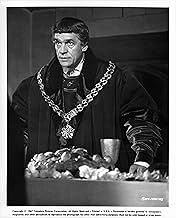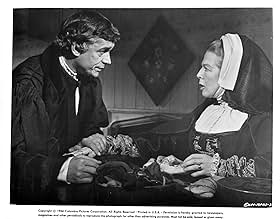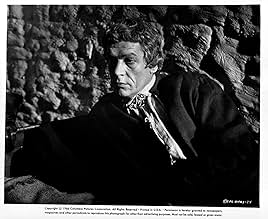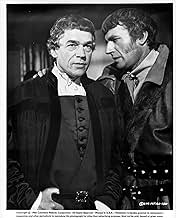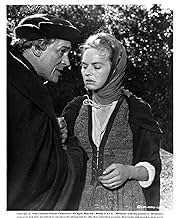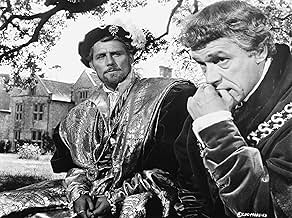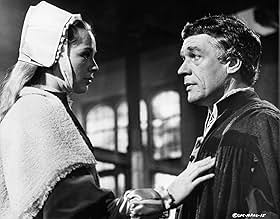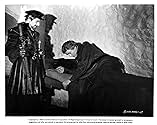The story of English statesman Sir Thomas More who defied King Henry VIII after Henry rejected the Roman Catholic Church in order to obtain a divorce and remarry.The story of English statesman Sir Thomas More who defied King Henry VIII after Henry rejected the Roman Catholic Church in order to obtain a divorce and remarry.The story of English statesman Sir Thomas More who defied King Henry VIII after Henry rejected the Roman Catholic Church in order to obtain a divorce and remarry.
- Won 6 Oscars
- 34 wins & 9 nominations total
- Director
- Writer
- All cast & crew
- Production, box office & more at IMDbPro
Featured reviews
A Protest
I can't add anything to what has already been said about A Man for All Seasons. Unquestionably one of the greatest films of all time, and stands the test of time. It will be revered as a great film 100 years from now. Will Lebowski? Doubt it. Winner of nearly every award it was nominated for. Best Picture, Best Director, Best Actor, Best Screenplay, etc. One of the few movies that makes my whole being vibrate when I watch it. I am moved to tears in almost every scene because the scene is executed so perfectly.
Please IMDb, this must give you pause. Any system that does not put this film in the top 100 borders on insanity or uselessness.
Lush costumer well set, magnificently performed and convincingly directed.
This splendid costumer-drama contains excellent performances by all star cast. Paul Scofield won deservedly Academy Award as upright chancellor with fateful destination but he was led from his cell in the Tower of London and beheaded. Outstanding Orson Welles at a brief appearance as Cardinal Wolsey and extraordinary plethora of secondaries as a young John Hurt, Wendy Hiller as his wife Alice, Nigel Davenport as astute Duke of Norfolk, Leo McKern as Cromwell, among others. And of course Robert Shaw as selfish King who discarded his first wife Catherine of Aragon and executed Anne Boleyn-Vanessa Redgrave in a very secondary role, in fact she refused to be paid for her supporting role-. Colorful,luxurious scenarios by John Box with evocative cinematography by Ted Moore, also Oscar winner. The movie benefits from sensible and perceptible musical score by George Delerue. Brilliant direction by Fred Zinnemann who adapted perfectly Robert Bolt's screenplay. Fred directed good films, such as: High Noon, The Seventh Cross, Act of violence, The Men, From here to Eternity, Oklahoma!, The Search, The Nun's story, The Sundowners, A Man for all seasons, The Day of the Dead, Jackal, Julia, among others. Rating: 8/10. Worth seeing. Fans of historical genre will like the film. Essential and fundamental seeing for completists of Fred Zinnemann's prosperous career.
The story is remade in 1988, an inferior TV version directed and produced by Charlton Heston with John Gielgud as Cardenal Wolsey, again Vanessa Redgrave and Heston as Thomas Moro.
The 1960s was an odd decade for film...
The Tudor dynasty of England was an interesting 120 years or so. This film focuses on the very brief time that Henry VIII was fighting the Roman Catholic Church over him marrying a second wife after the same church had made a special dispensation for him to marry the first, with that first wife now past the age of childbearing and no surviving son resulting from the marriage.
Into the fray comes Sir Thomas More, a devout Catholic. This film distills More's viewpoints down to his refusal to recognize that Henry has any right to break off from Rome and declare himself supreme head of the church in England. More seemed willing to help with arguments made to Rome in favor of granting Henry a divorce from his first wife, Katharine of Aragon, but he would not go past that into the taking of church property as Woolsey suggested or into the complete break from Rome that Henry eventually made. More was willing to help Henry as far as "working within the system", but he believed that system - the Roman Catholic Church - was established by God and he would not support an alternative view.
More remained silent on the issue of what Henry was doing, thinking this would protect him. He even remains silent to the viewer, since he refuses to share his opinion with anyone, though one can surmise it from what he has said he will not do or swear to and the resignation of his office of chancellor.
The real irony is everybody wondering at More's caution proclaiming - "This isn't Spain, it's England!", with everyone being so sure of their civil liberties there. Yet Thomas Cromwell was executed by Henry in 1540 for pretty much facilitating his marriage to an unattractive woman (Anne of Cleves), Anne Boleyn was executed on trumped up charges of adultery because she too failed to produce a male heir and a second divorce would have just been embarrassing, and the Duke of Norfolk only escaped execution because Henry died the night before Norfolk's scheduled execution. So it turned out that in Tudor England, dying in bed could be a goal difficult to attain in spite of it not being Spain.
In the end, More was executed because of the lies of RIchard Rich, as depicted in the film. More had this guy's number from the beginning. Before his fall from grace, More had urged Rich to take a teaching job and not press his luck at court because of his weakness of character and thus his susceptibility to being bribed and tempted. And yet it was the morally weak and treacherous Rich who eventually ascended to the office of chancellor, lived past the age of 70, and died in bed of natural causes.
The strength of this film lies in its performances - Scofield's steadfastly loyal and honest Thomas More, Robert Shaw as the bombastic and big as life Henry VIII, Susannah York as More's well educated and wise daughter, and especially an almost unrecognizable John Hurt as the slimy little weasel Richard Rich. My apology to weasels everywhere.
It is intensely political and philosophical and really appeals to people who think about standing up for one's ideals even when it is very easy to allow ethics to be bent.
powerful and misunderstood study of identity
It's very easy to see this film superficially as a moral fable, and many people scoff at it as being a stagy morality play. But it's both more subtle and more vibrant that that. The subtlety of Robert Bolt's script lies in its exploration of identity. We're not meant to identify or admire More's religious ideas, which the movie actually tiptoes around. Instead it's what Bolt called More's "adamantine sense of his own self" that the movie really highlights.
One of the most intelligent and moving films ever
Oscars Best Picture Winners, Ranked
Oscars Best Picture Winners, Ranked
Did you know
- TriviaDirector Fred Zinnemann, as quoted in his autobiography, calls this the easiest movie he ever made, thanks to the extraordinary caliber of the crew, and the actors and actresses, and the way they worked together.
- GoofsLord Chancellor Wolsey did not die in office; he was removed from the office of Lord Chancellor by Henry, and died more than a year after Sir Thomas More became Lord Chancellor. Wolsey did, however, remain Archbishop of York.
- Quotes
William Roper: So, now you give the Devil the benefit of law!
Sir Thomas More: Yes! What would you do? Cut a great road through the law to get after the Devil?
William Roper: Yes, I'd cut down every law in England to do that!
Sir Thomas More: Oh? And when the last law was down, and the Devil turned 'round on you, where would you hide, Roper, the laws all being flat? This country is planted thick with laws, from coast to coast, Man's laws, not God's! And if you cut them down, and you're just the man to do it, do you really think you could stand upright in the winds that would blow then? Yes, I'd give the Devil benefit of law, for my own safety's sake!
- ConnectionsFeatured in Precious Images (1986)
Details
- Release date
- Country of origin
- Languages
- Also known as
- El hombre de dos reinos
- Filming locations
- Studley Priory, Horton Hill, Horton-cum-Studley, Oxfordshire, England, UK(Thomas More's house)
- Production company
- See more company credits at IMDbPro
Box office
- Budget
- $2,000,000 (estimated)
- Gross worldwide
- $756
- Runtime
- 2h(120 min)
- Color
- Aspect ratio
- 1.66 : 1






